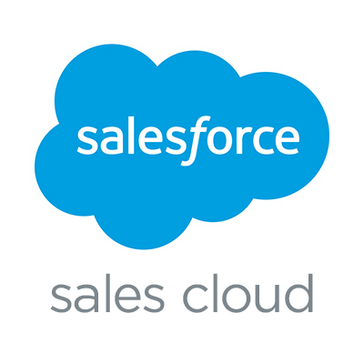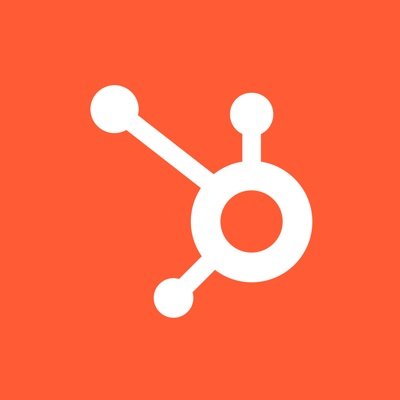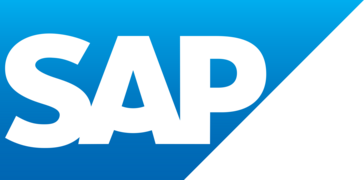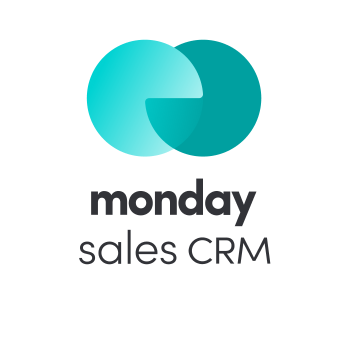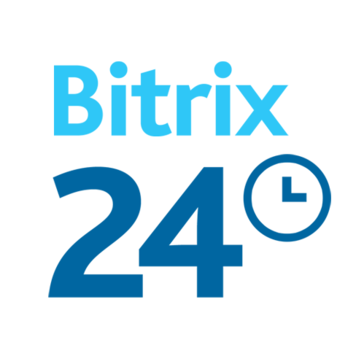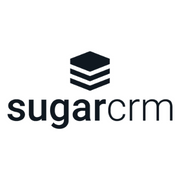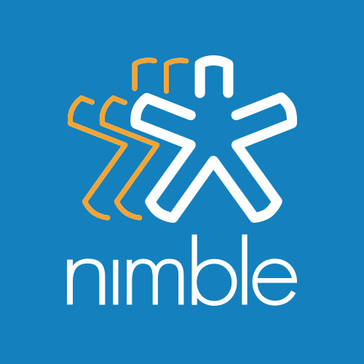Small Business CRM Software Buyer's Guide
Table of Contents
Now is a thriving time for small businesses around the world to exist - from a small bakery down the road to a departmental store to a home-based clothing business to a technology start-up.
It is exciting to be a small business owner in this era due to the plethora of opportunities, options, and exposure. However, it is also exhausting, given the multiple hats one has to wear. Whether it is marketing, sales, or customer support, too much is going on every step of the way. While managing these aspects, in the beginning, is pretty much easier, things get complicated as you grow.
So, what do you do?
Simple. Shift to CRM software for small businesses.
» What is CRM Software?
CRM, or Customer Relationship Management, the software is a system businesses use to establish, organize and nurture their relationship with current and prospective clientele. Think of it as a systematic way of connecting with your consumers.
The motive at the core is to maintain & enhance relationships within and outside your organization. Thus, you can expect the software to help manage your customers, as well as your workforce, stakeholders, and vendors.
The tedious tasks of identifying potential customers, converting them, and providing after-sale support and services are no longer complex. And you can retrieve, study, trace and track the journey of your leads or customers from a centralized place.
Not just that, CRMs are also designed to streamline business processes, which, in turn, helps improve your company’s profitability.
And it doesn’t stop there.
Using CRM software for small businesses benefits your business in more than one way. Let’s have a look.
» How CRM Helps Small Businesses?
Whether you are a tech firm, a service store, or a management consulting start-up, a small business CRM system can help strengthen the way you make and maintain customer relationships. For starters, the platform can simplify the lead generation process, which typically eats up a lot of time. It also allows you to segment, track and cater to your leads as per their distinct behavior. At the same time, you can manage the database of your existing customers without any hassles.
In both cases, though, the customer service and support shoot up big time. Since you have handy data on your client/prospect’s history and preferences, the communication becomes more direct, personalized, prompt, and smoother. Such a proactive problem-solving attitude makes a positive impression on your brand. And results in increased customer engagement, satisfaction, and retention.
Moreover, a CRM system helps you discover and make the most of business opportunities arising out of client referrals. It also simplifies process management for your employees and provides seamless communication, enhancing overall productivity. What’s more? The system promotes optimum resource utilization while reducing sales costs.
Now that you know how a small business CRM platform benefits you, it’s time to check out the features that make the system a must-have tool for small businesses.
» What are the Features of Small Business CRM Software?
While different CRM software would most probably offer a diverse range of features, the following are the common features to find in a top-rated CRM for small businesses:
› Lead management
An integral part of every best small business CRM tool, lead management empowers your sales teams to recognize the right leads with high chances of conversion they should focus on at the right time. The system uses multiple preset factors, such as prospect demography and previous interactions, to provide their accurate positioning in your sales lifecycle. Furthermore, you can manage these leads and assign them to your team members for distribution, persuasion, or re-engagement purposes accordingly.
› Contact management
The contact management feature of any CRM for a small business refers to the ability to manage the ever-growing list of contacts, categorize them into groups and serve them as per their needs and choices. Not only that, you can find any of your contacts, both business and individuals, in one place in a matter of mere seconds. That means no need to lose your time (and mind) over those thick diaries and strings of spreadsheets anymore!
› Campaign management
With the campaign management feature, you can run every campaign - right from the beginning till the end - from a single platform. Whether it is initial planning, resource allocation, scheduling, or analytics on ROI, a CRM system includes all the tools to make your campaigns more effective & successful. Also, most of these solutions provide you with complete control of defining user access controls.
› Marketing automation
Targeting the right prospects can be difficult at times, and that’s where marketing automation can help. It enables you to target the right audiences that may be actively looking for the services/products you offer with a more strategic and powerful approach. Moreover, the terms & control for which segments and aspects of your marketing efforts should undergo automation remain with you.
› Email management
A majority of small business CRM systems come with built-in email management capability so that you don’t miss any crucial emails or keep switching between different email clients. Such a function allows your team to organize and access their emails from a single place. There is usually a wide range of email templates available to help you get started right away. You can also merge it with your calendar to schedule a meeting with your prospects, clients, and suppliers.
› Sales forecasting
For any business to grow, it is critical to set goals and measure them from time to time. And sales forecasting allows you to do just that. You can use this capability to predict sales for the next quarter or a specific period realistically. This data then comes in handy to evaluate the actual results of your efforts and make necessary changes in your processes and approach in the future.
› Mobile CRM
As everyone is constantly on the move in this fast-paced tech era, it completely makes sense to handle your customer relationship management needs on the go. That’s why most of the best CRM software for small businesses offer mobile compatibility. From accessing vital alerts about your campaigns and sales goals to viewing and analyzing data for strategizing, you can do it all, no matter where you are.
› Social media management
Monitoring and managing your organization’s social media accounts have become a significant part of acquiring and maintaining customers today. And that’s the reason many leading small business CRMs come with built-in social media management. Using such a feature, you can create a more effective social media strategy, carry out social listening & posting duties, understand your target users, and respond to customers and inquiries promptly, in real-time. Besides, you can also track your brand mentions & traction easily.
› Sales force automation
Automating your tedious sales process in part or full is something you can expect from a powerful CRM system for small businesses. Whether it is a follow-up response to a client/prospect, organizing data, or scheduling calls to vendors, the software offers everything to help up your sales figures. Moreover, it makes way for you to automate your routine tasks to save time and resources.
› Dashboard and reports
Every high-performing small business CRM tool comes in with a user-friendly, intuitive dashboard that provides an overview of your process quickly at a glance. From documents to campaigns to stats from the last marketing effort to internal groups & communication, all the key information is right in the front. Apart from that, CRMs provide you with accurate insights into your processes and KPIs in real time, along with customizable report generation functionality.
› Workflow, approvals, and tracking
Thanks to a customer relationship management system, your small business can streamline its workflow and bring together disparate teams hassle-freely. Since a single platform lets you collate, manage and access data whenever you need, as a team, you’re always aligned with robust collaborative tools. Plus, there is smoother, uninterrupted file sharing & communication internally and with external stakeholders, making way for faster work designation and approvals. Additionally, you can keep a tab on components, such as your contacts, leads, data, and sales funnel, to help improve your operations consistently.
› Third-party integrations
Being a small business, you might already be using other business tools for a variety of purposes, like accounting and human resources. Thus, leading CRMs to offer third-party integrations, eliminating your need to juggle between different software solutions while ensuring your business operations remain as efficient.
› Customizations
Since every business, small or large, has its own set of goals, processes, and limitations, there is no one-size-fits-all CRM solution. That’s why you will find enough options to customize the software as per your distinct requirements. From ready templates to access controls to dashboards and reporting tools, you can make the CRM adapt to your current workflow rather than the other way around.
» What are the Benefits of Small Business CRM Software?
Using a CRM system for your small business brings in a host of benefits. Let’s discover what those benefits are in detail:
› It becomes a centralized hub for your data
Whether it is previous client interactions or vendor details, the best small business CRM systems would keep all your information in one place. That way, all your teams, be it marketing, sales, or customer support, get to access the data they need instantly. The result? You are not only able to save time and resources but also improve your future marketing & sales strategies. At the same time, the customer gets a better experience all along.
› It enhances team collaboration
No matter the size of your business, you can only succeed if your different teams are aligned at all times. That requires seamless collaboration, which small business CRM apps offer you by default. Whether it is file sharing, keying in information about a particular client interaction, assigning work, or communicating with your teammates over chats, the software offers everything you need to function as a close-knit team.
› It increases overall productivity
Thanks to small business CRM tools, everyone in the organization is in line with what steps they need to take next. The dashboard provides precise status about your workflow at any given time. Tasks are always assigned to the right employee. And no deadline is missed. Such a balance in the operations enhances employee engagement and involvement, both at an individual and team level, which, in turn, increases the organization’s overall productivity.
› It helps scale your sales
With an efficient CRM system for small businesses, you can generate leads with high conversion potential. Besides, you get to focus on the right leads at the right time with the right information. This kind of strategic targeting, in a consistent manner, helps convert more leads into customers, which eventually results in increased sales revenues.
› It improves client support
From customer demographics and previous purchases to recent interests and communications, a CRM system gathers and keeps all this data from across channels in one place. That enables your disparate teams to promptly solve consumers’ problems and furnish the information they require faster. Moreover, it opens up avenues for seamless personalization, making the customers feel valued while taking your customer support efforts a notch higher at the same time.
› It boosts client satisfaction and retention
Through CRM, you can achieve the right blend of targeted contact outreach, sales pitches, and prompt customer support, all of which, together, help create a strong positive image of your brand in the consumers' minds. As a result, customer satisfaction shoots up, and they want to keep coming back to the products/services you are offering over and over.
› It automates routine tasks
CRM solutions for small businesses are developed to offer the latest technologies, such as automation, to ease the burden on your workforce. It allows you to automate your mundane, repetitive tasks, including data entry, task allocation, and report generation. While that ensures the absence of human errors from your records, it also frees up your employees’ time to concentrate on more critical tasks.
› It fosters effective decision-making
Using a small business CRM app, you can monitor your KPIs, performance, and goals in real time. Not just that but you get to generate accurate, customizable analytics and reports about your processes and pipelines. Access to such precise, real-time data aids your decision-making skills, which helps meet business objectives.
› It streamlines business operations
Most of the leading CRM systems for small businesses offer third-party integrations, for instance, human resources and accounting tools. That way, it becomes possible for you to optimize and streamline otherwise disparate business operations without losing your distinct processes, quality standards, or efficiency.
» How to Choose the Best Small Business CRM Software?
Choosing one solution out of the long list of solid CRM tools for small businesses is easier said than done. After all, it is either going to make or break your business. There are multiple things you need to consider. What are those components? Let’s take a deep dive.
Steps to choose the best small business CRM system:
› Understand your requirements
Every small business has its own set of requirements, processes, and goals. That’s why a CRM yielding great performance for one business may fail for the other. Hence, it is critical to first identify your distinct requirements and list out your expectations from the software. That greatly helps you narrow down your options.
› Analyze what you need: cloud-based CRM or an on-premise one?
A majority of customer relationship management software is available as a cloud-enabled system as well as on-premise solutions. For some small business organizations, going cloud can be too expensive, while for some it may be the perfect solution. So before buying a CRM, determine what type complements your current organizational structure.
› Explore your options
There are different types of CRM systems available in the market, for example, collaborative, analytical, and operational. Each has its advantages and disadvantages. To get the most out of your CRM software, you have to gauge which type of CRM will serve your purpose without altering your present business workflow.
› Study and compare the CRM features & functionalities
While surfing the internet to find your best-fit CRM tool for small businesses, you will come across multiple options. Each of those options offers a diverse range of features and functions. So, how do you choose? Simple. Take note of the features every system has on offer and compare them with the list of your business requirements. Keep eliminating the ones that do not fit your needs right away.
› Look for flexibility and scalability
A small business is not going to be small forever. There would be growth, regardless of the industry. In this case, it makes sense to opt for a system that can handle your growing CRM needs without compromising on processes or performance. At the same time, ensure that the CRM you choose is flexible enough to adapt to your unique business processes - not the other way around.
› Check the available integrations & customization options
Does the small business CRM system offer third-party integrations with other business tools? Is there enough room for personalization? Finding answers to these questions is crucial to select the ideal CRM for your small business success. Both of these factors come under a must-have list you should never compromise with.
› Enquire about post-sale support and training
Post-purchase support is as important as the software’s inherent features, if not more. The last thing you want is to get stuck using the system and have no means to rectify it in the middle of your conversion process! That’s why you must get clarity from the vendor about their after-sale support and services. Besides, don’t forget to ask the vendor about the learning curve and whether they conduct training sessions. And if both the support and training are covered under the CRM software cost.
› Don’t forget the cost
Like any other thing in the world, the cost of the software plays a key role in the software selection process. Some systems may be cheap but offer poor performance while some may provide great functions at a higher rate. Since every small business has its budget, it is wise to outline your budget and shortlist the systems that fit the buckets of both your price limitations and requirements.
› Opt for a free trial first
Nearly every CRM software for small businesses comes in with a free trial. The days of the free trial may vary from 7 to 14 to 30 days, depending upon the vendors. But since free trials and free versions are available, it is only apt to first see the system live in action before you shell out your hard-earned money.
› Gather vendor reviews before saying a “Yes”
What do the current and past customers of the CRM software you are planning to choose have to say about the system and the vendor? Look up, gather and analyze the reviews and ratings from multiple sources before signing the check. There are many leading software review sites out there to help you make a wise decision.
» How Much Does Small Business CRM Software Cost?
The pricing of small business CRM software varies from vendor to vendor. You will find free small business CRM software, low-cost CRM software, and premium ones, too, on the market. Each of these packs in a unique bunch of offerings, performance capabilities, and limitations.
To give you a rough idea, a small business CRM tool can cost you as low as $10 a month per user or as high as thousands of dollars per month/per user. In the end, it all comes down to the features you want in the system and your business goals and requirements.
» Conclusion
Running a small business is both exciting and challenging. While you may be able to manage multiple operations on your own easily in the beginning, things get chaotic as you grow. Especially when you’ve multiple clients and teams to handle. That’s when a small business CRM software system can come to your rescue.
From getting your contacts, leads, and data organized in one place to providing instant access to information to improving your sales and marketing efforts to improving collaboration among your teams, the software streamlines processes in ways you never knew you needed. After exploring the features and benefits of CRM for a small business in this guide, it will become simpler for you to choose the best-fit one for your organization.
